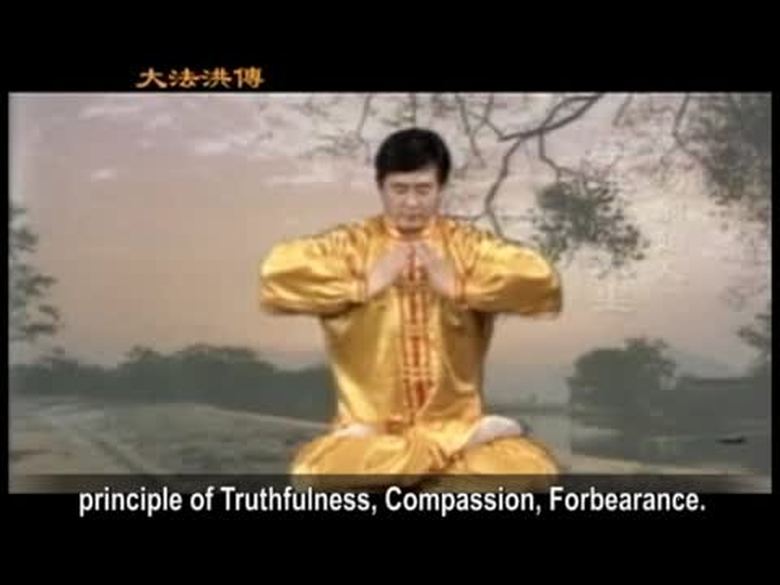【新唐人2011年5月11日訊】為期兩天的「美中戰略與經濟對話」9號在美國華盛頓開幕。美國副總統拜登表示,在人權問題上兩國存在很大的意見分歧。而美國國務卿柯林頓則表示,在人權議題上,美國向中國非常明確的表達憂慮。更有外媒報導,中共怕引發國內抗議,望這次對話低調。
美國副總統拜登和國務卿柯林頓,向中共當局表達了對中國人權記錄,以及中共正在進行鎮壓行動的憂慮。
美國副總統拜登:「我們在人權問題上有強烈的分歧,我們關注近期在中國的鎮壓行動,包括對記者、律師、網絡作家以及藝術家的攻擊、拘補和無端失蹤,我再次重申,真正的友誼絕不會建立在錯誤的基礎上。哪些問題上有分歧,重要的一點是要表達出來。」
不過,《國際先驅論壇報》報導,雖然美中正在展開新一輪戰略對話,但是在中國,中共當局對西方的批評卻更加劇烈,甚至有中共官員對駐北京的外國官員說,他們認為「美國正在煽動中國革命」。
《國際先驅論壇報》以頭版頭條刊登文章指出,最近3個月,在中國大陸的外國人,尤其是西方人,感覺來自中共政府的審查和壓力越來越大。
報導中提到,今年2月到4月間,至少有60項由美國駐北京使館組織的活動被取消,據說都是因為中共當局干預,其中包括有外國人參加的文化論壇和學校活動等。此外,中共的教育部對出國訪問的學者也多次發出警告,要求他們不要參加“反華”活動。
文章指出,中共當局對一些「非盈利組織」審查的更為嚴厲,尤其是接受美國政府或歐洲聯盟資助的機構,最近頻繁受到稅務官員的干擾。此外,席捲中東及北非的“茉莉花革命”開始以來,中國國內的許多外國網站,包括Twitter、Facebook、Google等,都受到中國當局更多的封鎖和騷擾。
有分析認為,中方在近期的對話中更為低調。美國卡內基國際和平基金會副主席帕爾 ( Douglas Paal)向《法新社》表示:"中方不希望舉行大型宴會或致詞,可能是因為他們對國內發生的事情保持低調,不想引發抗議。"
網友「中國人」則在《美國之音》發貼說:「人權問題非常重要。很高興看到美國終於正面大聲的說出了這個問題。」
另外,這次美中會談除了人權問題外,雙方還就人民幣匯率等經貿議題舉行磋商。但是,美國經濟智庫成員梅爾次(Allan H. Meltzer)教授向《大紀元》新聞網表示,根據他從以往經驗來看,「美中經濟對話」不會取得實質進展。
新唐人記者林慧心、肖顔綜合報導。
U.S.' "Vigorous Disagreement" with China
The U.S.-China Strategic & Economic Dialogue
concluded on May 9 in Washington D.C.
According to Joe Biden, U.S. Vice President,
there is a huge gap between the two countries
on the issue of human rights. Hilary Clinton,
the U.S. Secretary of State said
that the U.S. stated to China very clearly
their concern on human rights. Foreign media
reports that the Chinese Communists Party (CCP)
hopes to keep this dialogue on a low profile,
in fear of triggering domestic protests.
U.S. Vice President Joe Biden and U.S. Secretary
of State Hilary Clinton expressed concerns to CCP
authorities about their records on human rights,
and current suppression of human rights activists.
U.S. Vice President Joe Biden: "We have
a vigorous disagreement in the area of human rights.
We have noted our concerns about the recent
crackdown in China, including attacks, arrests
and disappearances of journalists, lawyers, bloggers
and artists. And again, no relationship that is real
can be built on a false foundation.
Where we disagree, it is important to state it."
According to International Herald Tribune, although
U.S. and China are launching a new round
of strategic dialogues, the Chinese authorities
have started more intense criticism of the West.
Some Chinese officials even told foreign officials
in Beijing that they believe
"the U.S. is inciting Chinese revolution."
The headlining article on International Herald Tribune
pointed out that in the last 3 months, foreigners,
especially Westerners in mainland China,
feel there is more censorship and pressure
exerted by the Chinese government.
The report states that from February to April 2011,
at least 60 activities organized by the U.S. Embassy
in Beijing, including foreigners' participation
in cultural forums and school activities,
were canceled due to authorities' intervention.
In addition, the CCP Ministry of Education
repeatedly warned visiting scholars going abroad
not to participate in "anti-China" activities.
The article pointed out that the Chinese authorities
apply more stringent examination on a number
of non-profit organizations. In particular,
organizations funded by the U.S. government
or the European Union are frequently harassed
by Chinese officials. Moreover, with the recent
Jasmine Revolutions across the Middle East
and North Africa, many Internet sites in China,
including Twitter, Facebook, Google, etc.,
are more frequently blocked
or harassed by the Chinese authorities.
Some analysts believe China will carry a low-profile
attitude in recent dialogues. Douglas Paal,
Vice President of Carnegie Endowment
for International Peace Foundation, told AFP:
"China does not want to hold a large banquet
or have a speech, probably because they want
to keep a low profile on domestic events,
and do not want to trigger protests."
Netizen "Chinese Man" posted on VOA:
"The issue of human rights is very important.
I am very happy to see U.S. finally speak up
on this issue in front of the CCP."
In addition to human rights issues, the two countries
also discussed economic and trade issues
such as the RMB exchange rate.
However, U.S. economic think-tank,
Professor Allan H. Meltzer told The Epoch Times,
that based on his past experiences he thinks
"U.S.-China Economic Dialogue"
will not make much progress.
NTD reporters Lin Huixin and Xiao Yan.
看下一集

【禁聞】網友炮製「中國特色」有毒食品國宴

【禁聞】曬“公共安全賬”《財經》助《法廣》?

【禁聞】800多名學生被“光明正大”欺騙

【禁聞】許宗衡被判死緩 貪賄額縮水涉內鬥

【禁聞】中國4月通脹略有回降但壓力仍巨

【禁聞】老作家諫言胡錦濤 被軟禁

【禁聞】“選對人” 賈慶林施壓台灣選舉

【禁聞】美方批人權 中方打太極

【禁聞】計生官員“沒收”嬰兒出口

【禁聞】汶川地震三週年 學校重建的真相

【禁聞論壇】誰的收入五年能倍增?

【禁聞】打壓信仰自由 中共到底怕甚麼?

【禁聞】下崗女工參選人大代表遭警威脅

【禁聞】法輪功創始人李洪志蒙冤12年 真相還清白

【禁聞】中共政壇兩股勢力 左右派唇槍舌戰

【禁聞】法輪大法日 常人眼中的法輪功








